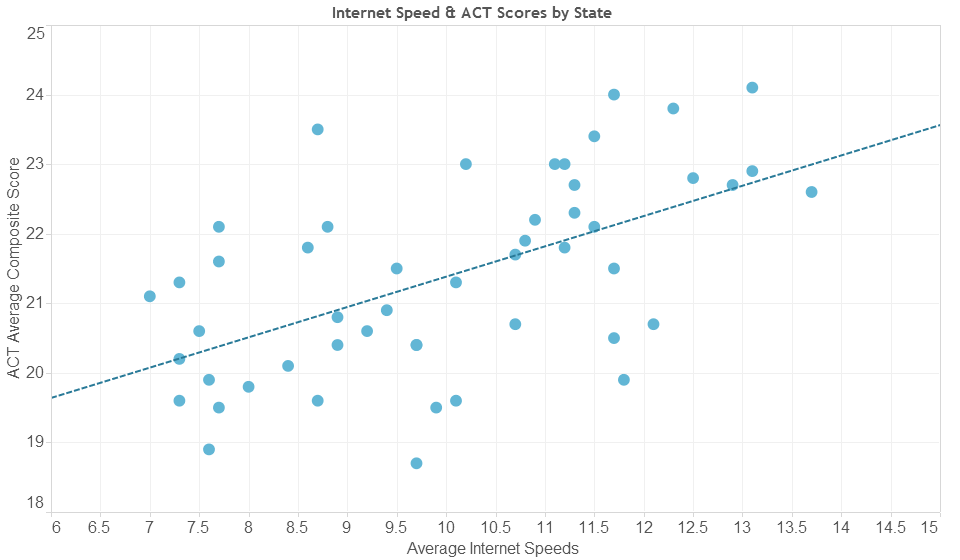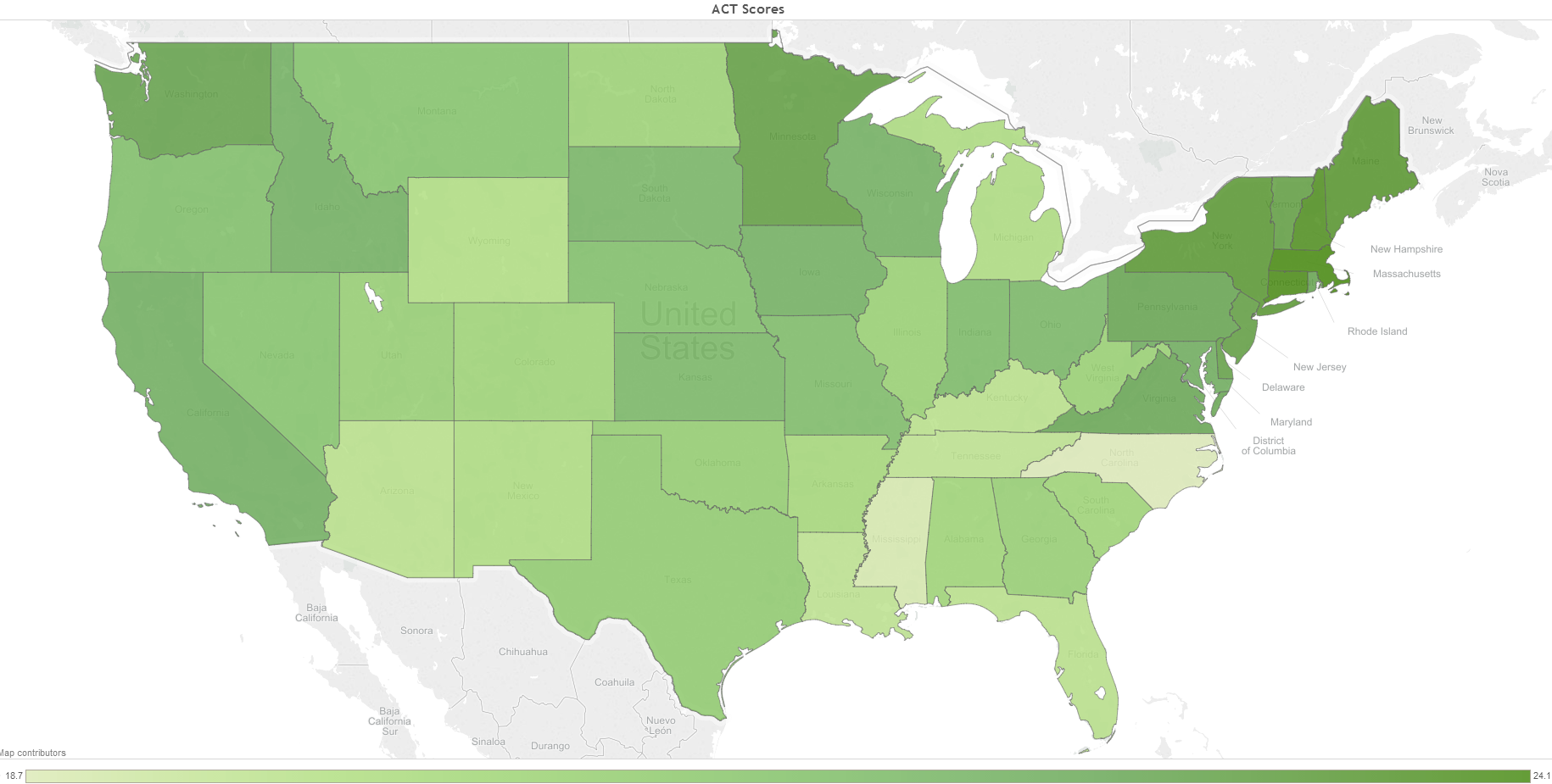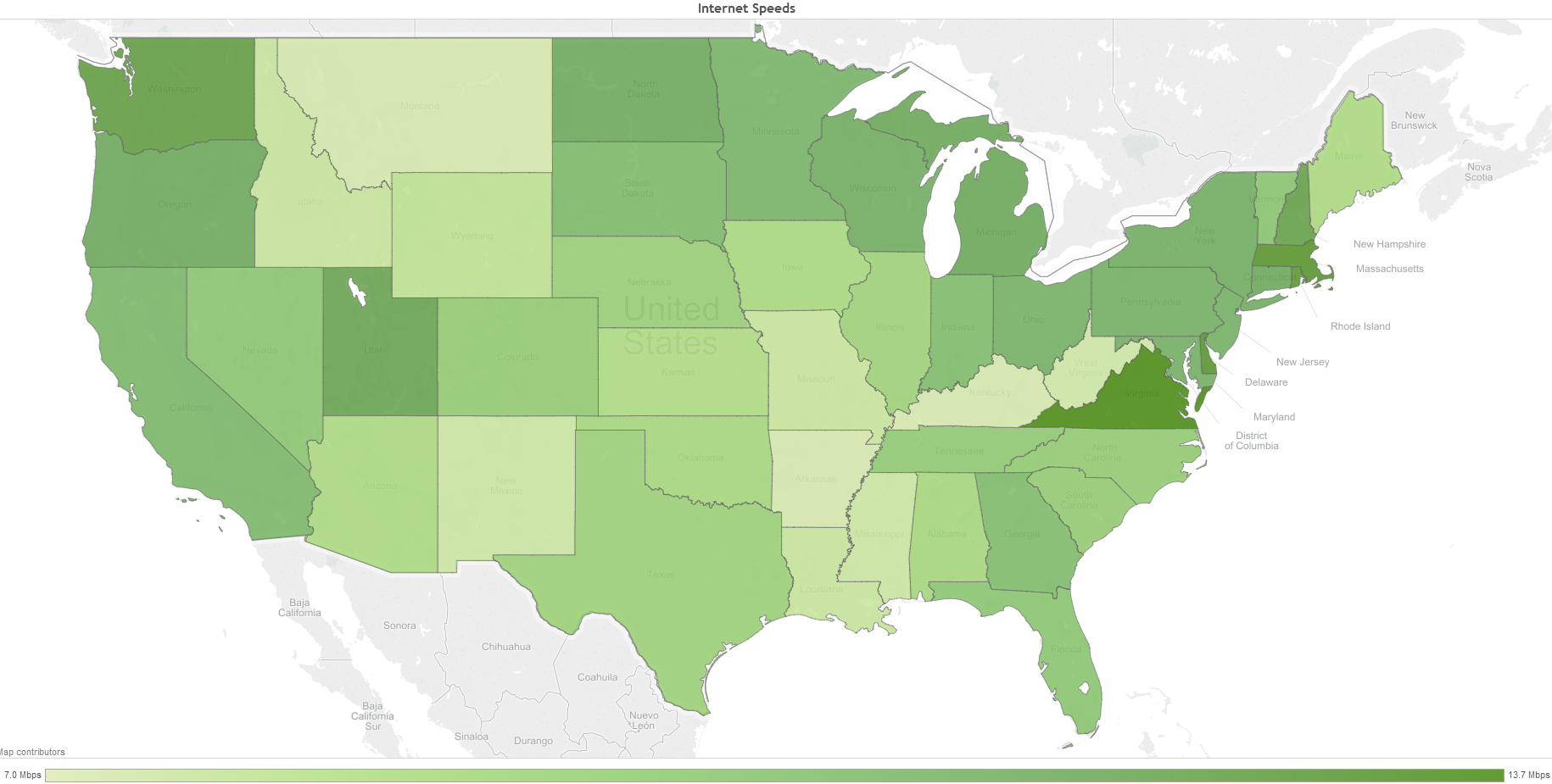US states with faster internet access have smarter people

Despite several doomsday claims that the internet is breeding a generation of morons, new analysis suggests the opposite may be true.
We gathered the 2013 average ACT scores for each state from act.org and compared them with the 2013 internet speed data from Akamai that was highlighted in a recent Broadview article. We found a correlation of .57. This strong correlation shows that students from states with faster internet speeds have higher ACT scores on average.
This analysis doesn’t mean fast internet will turn your kid into a genius, or that somehow upgrading your internet service will add points to your IQ, but it does show us that environments conducive to fast internet are also conducive to learning.

The dissemination of information from one person to another is the essence of education. Families living in communities and homes with fast internet connections had to invest in the infrastructure needed to provide it. That investment shows they value the free flow of information high speed internet provides. Therefore, states with faster internet have smarter students, because they understand the value that easily accessible information has for students.
So, who’s the fastest and the smartest?
By ranking and mapping each states’ internet speeds and ACT scores side by side, you can see the connection more clearly. The first map shows ACT scores, and the second shows faster internet speeds. 

The top five states with the fastest internet all have ACT scores in the top 15.
- Virginia
- Delaware
- Massachusetts
- Rhode Island
The five states with the slowest internet all have average ACT scores in the bottom half of the rankings.
- Alaska
- Montana
- Kentucky
- Arkansas
- West Virginia
A few states stray from the trend by being among the 10 fastest states, but in the bottom 20 in ACT scores.
- Michigan
- North Dakota
- Utah
Fast internet doesn’t appear to be helping Michigan much, ranking 8th for internet speed, but just 41st for average ACT score.
On the other end of the spectrum, some states are in the bottom 15 for internet speeds, but still manage top-half ACT scores.
- Maine
- Idaho
- Missouri
Maine is the biggest oddity here -- ranking 37th for internet speed, but fourth for average ACT score.
Even with these select exceptions, the correlation is quite strong and it’s even stronger -- .61 -- when you look at the ACT math section individually.
You can’t buy intelligence
In a previous HSI post examining the correlation between internet access and happiness, we explained that several factors can play a role in causing these types of connections. In an attempt to explain why this one exists, we looked at the relationship of the average internet speed and the average ACT score for each state and two financial factors, median household income (HHI)* and gross domestic product per capita (GDP). We pulled this data set from the U.S. Department of Commerce Bureau of Economic Analysis.
We found the correlation between a state’s GDP and its average ACT score is .41 and the correlation for HHI and average ACT score is .54. Remember the internet speed correlation is .57. What does this mean?
A states average internet speed is a better indicator of its average ACT score than its median household income or its GDP.
The fact that the economic correlations are weaker than the internet speed correlation shows that, although a state’s wealth may have some influence on both its internet speed and its ACT scores, it is not the overriding factor causing the speed/ACT score relationship. Determining what the overriding factor actually is will require more research.
*the most recent data available for HHI was from 2012
But, I thought staring at your computer made you dumb…
Our numbers fly in the face of studies like this one from New Zealand, which concluded, “In general, online reading has had a negative impact on people’s cognition.” However, other research backs up our findings.
Clive Thompson, author of Smarter than You Think – How Technology is Changing Our Minds for the Better, told The Verge in an interview last year, “What I concluded was that technology can allow you to teach kids in remarkable new ways, but you should never use it to replace something you are already doing perfectly well with pencils, paper, and chalk.”
Understanding the long term effects the internet has on our cognition still requires more research. But, regardless of how the cause and effect relationship shakes out, the strong correlation between internet speed and ACT scores remains.
Photo Credit: Creativa/Shutterstock
This post originally appeared at highspeedinternet.com